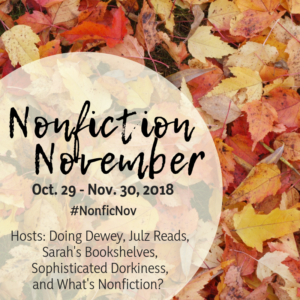Humankind: A Hopeful History is more than just a popular science book that hits the right note during this unsettling time in our human history. For starters, Bregman uses a LOT more footnotes than one usually finds in a popular science book. He has obviously spent a lot of time researching, questioning and thinking about his topic - that we are in fact, when push comes to shove, mostly a species of decent and kind beings.
Humankind is a book designed to explore the best and most hopeful aspects of human nature. According to Bregman this is one of the things that we all share in common, regardless of race, culture, and religion. Yes, there are some sociopaths out there, but they are a very specific and aberrant group. They are not the norm.
I understand there have been some concerns about cultural appropriation of stories surrounding this book and I understand where those concerns come from. But that's not what this book is about. It's about the kindness we all share as human beings, and our ability to pull together in tough times. It's the things that unite us, not divide us. Although, Bregman does spend some time, later in the book, discussing why it is that some of the divides have come into being. It turns out the Age of Enlightenment was not so enlightening after all!
He discusses war, slavery, the Holocaust, sexism, racism, xenophobia and catastrophes within the context of his premise. He dissects the role that media, news and the internet have on exposing the exceptional, the unusual and the shocking as opposed to the usual, the everyday and the normal. The aim of the news and information as we now know it, is to grab your attention and shock, not to enlighten.
He exposes the fallacy and myths surrounding The Lord of the Flies theory, the selfish gene, the reality of battles and warfare "interviewing veterans of WWII, they found that more than half had never killed anybody", the mystery of Easter Island, the 1971 Stanford University Prison study, the Robbers Cave experiment, the 1961 Stanley Milgram shock experiment, the bystander effect and terrorism.
Reading Humankind, as I did, during the early stages of the Covid-19 lockdown, I was struck by this particular thought:
Infectious diseases like measles, small pox, tuberculosis, syphilis, malaria, cholera & plague were all unheard of until we traded our nomadic lifestyle for farming. So where did they come from? From our new domesticated pets - or more specifically, their microbes.
I was saddened when he noted later on that "education has become something to endure." The truth of this has been brought home to me constantly over the past decade as the boys finished their school years. They have no inspirational stories to tell about their school days, like Mr Books and I both do. They have plenty of tales about what they got up to with their friends during the breaks, but nothing about what they learnt. All they ever wanted to know was what they would need to pass their exams to get them out of there. How did education become such a dull, routine thing?
Bregman finished with his very own 10 rules to live by (everyone seems to be doing it lately!)
- when in doubt assume the best
- think in win-win scenarios
- ask more questions
- temper your empathy, train your compassion
- try to understand the other, even if you don't understand where they're coming from
- love you own as others love their own
- avoid the news
- don't punch Nazis
- come out of the closet: don't be ashamed to do good
- be realistic
I found Humankind to be an interesting read, especially the debunking of the deeply flawed human psychology studies from the 60's and 70's, the very same ones I learnt about at uni thirty years ago, which were held up to be self-evident truths at the time. However I did grow rather weary of Bregman's tone by the end. His determination to be hopeful began to seem like one of the self-fulling, Pygmalion Effects that he wrote about!
Bregman offers a hopeful antidote to our current pandemic and political situations. It's always nice to be reminded that most people are decent folk doing the best they can. In fact, there are way more kind people on the planet, than not. And that's a good thing.
Facts:
- Translated by Elizabeth Manton and Erica Moore.
- Bregman was born the year I finished my Diploma of Education (1988).
- Author of Utopia for Realists: How We Can Build the Ideal World (2016).
Book 7 of 20 Books of Summer Winter






